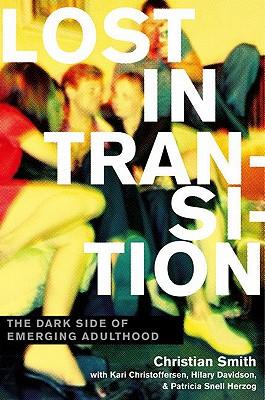
[youtube=http://www.youtube.com/watch?v=_Gc3RW0NHlg&w=550]
Another gem of a chapter from Christian Smith’s Lost in Transition: The Dark Side of Emerging Adulthood deals with, in his opinion, one of the deepest (and most subtly hidden) plights of 20-somethings today, that of political distrust and disconnect. Because the 2008 election was so reportedly groundbreaking in the involvement of new voters, it seemed that a new dawn had arrived for the American political milieu, that once again people were believing in and participating in a “change they can believe in.” Change. Any way you accord yourself along the line, now, it’s evident that the general enthusiasm has wilted. Smith, though again a bit curmudgeonly on the reasons behind civic apathy–gives great perspective on both what the problem is, and what in emerging adults has brought it to bear. So what is this civic apathy?
On occasion, some apathetic emerging adults expressed mild regret for not being more concerned and active. One, for instance, said, “I wish I could be pro somebody. I would be so passionately pro somebody if they were worth it, if they were worth my while.” But then they said it was just not worth the investment. Another told us:
I feel like I should [be more political]. I don’t know, that I’m lucky enough to live in a system where I, to atleast some extent get a say in what happens and what gets to be okay and what’s not, and those kind of things. And that, especially things that I have an opinion on, I should go out and do something about it. But I don’t.
“Why not?” we asked. “I don’t know,” she answered; “I’m really bad at having a really invested forethought to things that aren’t happening around me. I think that it’s horribly bad that I tend to just talk about myself, and there are other people my age that are in a war [in Iraq]. And it doesn’t affect us at all.” Thus, at times, even some politically apathetic emerging adults might wish that they were more more invested in the world beyond their personal lives. But that wish does not translate into any change of thinking or behavior (198-99).
 What Smith doesn’t point to here is Romans 7, and the distinction between knowing something to be good, and doing that good. We can rationally assent to something being a good thing, like cleaning up the neighborhood park, but it doesn’t enable the emerging adult to translate that knowledge into practice. (This, duh, seems not to be unique to 20 somethings…) What Smith does point to here is a generation-specific malaise consisting of “extremely low estimations anyone’s ability to make a positive impact on the world,” rooted in what he calls individualistic relativism. This is different from American individualism; it is a rootlessly connected autonomy, based on the self as not just the key, but the only basis for decision-making factors. Smith connects this rootlessness to the kinds of connectivity and technological submersion emerging adults use to function “in community.”
What Smith doesn’t point to here is Romans 7, and the distinction between knowing something to be good, and doing that good. We can rationally assent to something being a good thing, like cleaning up the neighborhood park, but it doesn’t enable the emerging adult to translate that knowledge into practice. (This, duh, seems not to be unique to 20 somethings…) What Smith does point to here is a generation-specific malaise consisting of “extremely low estimations anyone’s ability to make a positive impact on the world,” rooted in what he calls individualistic relativism. This is different from American individualism; it is a rootlessly connected autonomy, based on the self as not just the key, but the only basis for decision-making factors. Smith connects this rootlessness to the kinds of connectivity and technological submersion emerging adults use to function “in community.”
Much of the lives of emerging adults appears to be centered on creating and maintaining personal relationships of varying degrees of closeness. What makes emerging adults most happy in life are their good relationships with family, friends, and interesting associates…Few emerging adults have hobbies, participate in community groups or other organized activities, or are even devoted to working long hours for the sake of careers. Instead, they are absorbed with friends and family. Most emerging adults would rather spend large amounts of time merely “hanging out” in private settings with various intimates and acquaintances, for instance, than being part of clubs or interest groups, not to mention political parties or social movements. Thus, the apparent move of Americans away from civic participation in public life and toward the enjoyment of “lifestyle enclaves”…may for today’s emerging adults be progressing yet further toward the nearly total submersion of self into fluidly constructed, private networks of technologically managed intimates and associates.

COMMENTS
One response to “Lost in Transition (to Adulthood): Political Apathy and the Prison of Connectivity”
Leave a Reply













Sheesh. When did they write my biography? Why wasn’t I informed?
This is me. Down to the letter. Thankfully, I have some rye whiskey to sulk in.